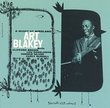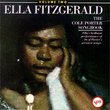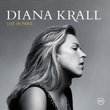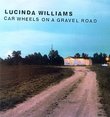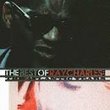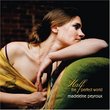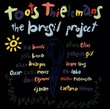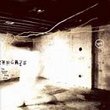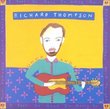| All Artists: Clifford Brown, Max Roach Title: Brown & Roach Inc Members Wishing: 1 Total Copies: 0 Label: Umvd Special Markets Release Date: 1/28/1997 Genre: Jazz Style: Bebop Number of Discs: 1 SwapaCD Credits: 1 UPC: 731453439221 |
Search - Clifford Brown, Max Roach :: Brown & Roach Inc
 | Clifford Brown, Max Roach Brown & Roach Inc Genre: Jazz
2009, 180 gram VINYL Audiophile pressing. Limited Edition classic LP's. The way this music was meant to be. |
CD DetailsSynopsis
Album Description 2009, 180 gram VINYL Audiophile pressing. Limited Edition classic LP's. The way this music was meant to be. Similar CDs
Similarly Requested CDs
|
Member CD ReviewsReviewed on 8/26/2006... a classic, with Brown on trumpet, Roach on drums, George Marrow on bass, Harold Land on tenor, and Richie Powell on piano. Recorded in August of 1954,
CD ReviewsBeautiful Bebop by Brownie and Company! M. Allen Greenbaum | California | 05/17/2000 (5 out of 5 stars) "Brown is--justifiably--a jazz icon, and this CD showcases his celebrated rapid-fire riffs and remarkably rounded and mellow tone.The rapid bebop of "Sweet Clifford" and the closer," I Get A Kick Out of You," may have you shaking your head in awe, with fast but fully articulated soloing by Brown, and simply amazing bop sax by the (underrated?) Harold Land. The notes and lines are just right! Max Roach's astonishing drumming adds to the intensity and wonder of the experience.Brown's long, almost haunting trumpet on "I Don't Stand a Ghost of a Chance With You" is one of the most beautiful and evocative trumpet solos I've ever heard. His voicing of the lyrics and tender/plaintive sound are superb.Richie Powell is the force behind "I'll String Along With You," and recalls the tone of Tatum, the sentiment of Hoagie, and the chord emphasis of Nat Cole. "Stompin' at the Savoy" grooves mellow, with light comping by Powell and bassist George Morrow, and warm burnished solos by Brown and Land. Max Roach slowly builds his solo teasingly, culminating in a bop tour de force. Land is especially effective on "Darn That Dream" where his warm, lush, burnished playing recalls the John Coltrane/Johnny Hartman CD. Whether you're a longtime Clifford Brown fan, or are just making his acquaintance, I highly recommend this album!" And last but far from least-- Samuel Chell | Kenosha,, WI United States | 05/22/2007 (5 out of 5 stars) "Clifford Brown is the most non-controversial musician I can think of--probably the only musician, in fact, about whom I've never heard as much as a contrary word. The evidence is there for all to hear on recordings such as this one. But that evidence should also conclusively show that, though Rollins was certainly a powerful performer, there was none better than Harold Land 1954-1964, who is not only with Clifford on most but the best of the recordings with Max Roach. He's no less impressive (actually more stunning) on the sublime sessions he would record with Curtis Counce as well as dates, such as "The Fox," under his own leadership. I've never experienced a soloist who could at the end of an ensemble chorus come flying out of the chute with such purposeful and propulsive eloquence, creating while suspended in mid-air and setting up the re-entrance of the rhythm section, all but erasing the distinction between ensemble head and solo improvisation.
Land was not a big guy, and were he playing on-stage next to Rollins, he'd no doubt be physically dwarfed and sonically "blown away." He had a smallish, hard-edged sound with absolutely no frills or vibrato, but his melodic lines are in a league of their own. As they always say about Sinatra, listen to his phrasing--not only do his lines live and breathe, whether in the ensemble mix or playing solo, but the man simply does not waste a note. He sees the whole playing field and, like an elegant sailboat, opportunistically charts his course to consummate completion. After 1970 Land would make some interesting sides with Hutcherson, but for the most part the scene was no longer hospitable to his kind of immaculate, logical but no-less soulful playing. He would find himself in unflattering contexts, and his tone seemed to lose vibrancy along with the breath support necessary to keep his pitches dead-center. Nevertheless, for those ten years Land, along with Hank Mobley, is the tenor player whose recordings I never grow tired of listening to (no offense to Coltrane, Dexter, Rollins, etc., but I'm more likely to reserve those guys for special occasions)." |

 Track Listings (7) - Disc #1
Track Listings (7) - Disc #1